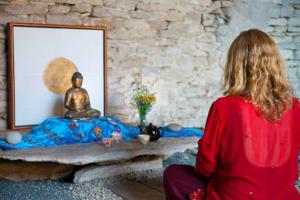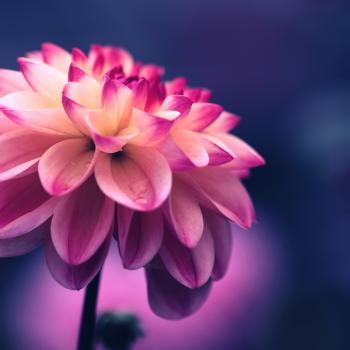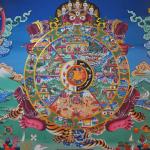 My name is Satya and I am a Pureland Buddhist. The primary practice of Pureland Buddhists is the nembutsu. Here’s what Zen Master Hakuin had to say about nembutsu in a letter to a lay student in 1748, sternly warning him about what happens to students who aren’t diligent in their zen practice:
My name is Satya and I am a Pureland Buddhist. The primary practice of Pureland Buddhists is the nembutsu. Here’s what Zen Master Hakuin had to say about nembutsu in a letter to a lay student in 1748, sternly warning him about what happens to students who aren’t diligent in their zen practice:
In the end, they are reduced to fingering rosaries and tearfully reciting Nembutsu, a pastime that brings them no more relief than one of those ready-made toothache medicines sold in the streets.
When I talk to my non-Buddhist friends and to my Buddhist colleagues, I suspect that sometimes they are sympathetic to Hakuin’s position. What, so saying the nembutsu, the name of Amitabha Buddha, is enough? Everything else is taken care of by the Buddhas? What about effort? What motivation is there to practice? Are you really a proper Buddhist?
In my school of Pureland Buddhism, we do study the sutras and we do other Buddhist practices like meditation and making offerings. I have a long list of vows that I took when I became ordained, and I do work with these and aim to keep them. All of these practices, however, are seen as secondary to the nembutsu. They might help us to pass on the Dharma to others, but they don’t have any affect whatsoever on our ultimate salvation. They aren’t necessary. Only the nembutsu is necessary.
Pureland Buddhism holds that, no matter how hard we try, we can’t save ourselves from within the system of our own delusion. We are bombu beings, driven by deep currents of greed, hate and delusion. Our only hope is to see this, and to call out for help. Our only hope is to open ourselves to grace. We call out as foolish beings, ‘Namo Amida Bu’, and we are received by Amitabha. We are assured that we will be received in Amitabha’s Pure Land, and even if we don’t really know what the Pure Land truly is we can be sure that it is a good place. We can relax. We can lean into faith.
A common criticism of Pureland Buddhism is the ‘licensed evil’ argument. If we are accepted by Amitabha regardless of whether we do good or bad things, does this mean we give up on trying to be good? As the sage Honen reminds us, just because we have the antidote, it doesn’t mean we should carry on drinking the poison. In my own experience, knowing that I am seen by Amitabha and accepted ‘just as I am’ leads me to want to be a better person. Feeling accepted gives me the courage to face the worst of myself and to bring it out into the daylight. It means that my dysfunction is less dangerous to others because it is visible to me and to them – it’s ‘on the table’.
In my first few months of doing prostrations, I felt self-conscious. I was worried that someone passing on the street might look in through the window and see me doing this weird thing. Recently I have realised that I have felt self-conscious or apologetic about nembutsu being my primary practice until quite recently. We have even avoided using the word nembutsu in our programme here at the temple.
I’m ready to come out. I’m ready to say, it won’t be for everyone, but for me nembutsu is a wonderful practice which connects me to the Buddha as nothing else does. It brings me wisdom, helps me to be more compassionate, and consoles me. It wakes me up and brings me faith. It is accessible to everyone, regardless of how much time they have, how academic they are or whether they are living ethical lives. It is a radical practice, and it is my chosen practice. My name is Satya and I am a Pureland Buddhist. Namo Amida Bu.
(If you’d like to try it out for yourself, we are offering a free 30 day course starting on the 1st of November).











